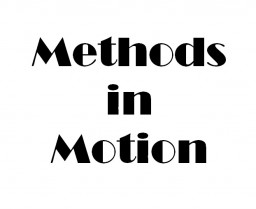 Former Chancellor George Osborne
Former Chancellor George Osborne
When thinking about contemporary politics, citizenship appears to be a key concept. It is a concept that has proven to be especially valuable, particularly due to the fact that it is open enough to capture diverse types of political action from equally diverse political actors. Analyses of sexual, multicultural, and feminist citizenship, among many others, point to the importance of this concept for understanding and engaging with contemporary politics.
It is therefore no surprise that citizenship has been at the core of much scholarly work from sociologists, political theorists and other social scientists. While the contribution of sociology and political theory to the study of citizenship is well-established, the contribution of social psychology has been less visible. Here, I will make a case for the value of a social psychological analysis of citizenship, in an effort to advance a more interdisciplinary approach to the study of today’s politics.
To start with, citizenship is better understood as a practice or an act, rather than a status. Studying citizenship is about studying the processes ‘through which actors constitute themselves (and others) as subjects of rights’ (Isin, 2009:371). In other words, citizenship is about claiming a political voice, about becoming a political agent.
This focus on act and actor-oriented citizenship is aligned with a social psychological perspective. As John Shotter (1993) suggested some time ago, we should study citizenship in action. Indeed, social psychology’s particular contribution to the study of citizenship has to do with its capacity to uncover how citizenship is understood, enacted and negotiated (how it is ‘done’) in the micro-politics of everyday life. As opposed to a focus on the macro-structures of state citizenship regimes, social psychology is interested in the perspectives of lay political actors, that is, citizens themselves.
This becomes particularly important in a context where the ‘ordinary citizen’ has been depoliticised and where politicians claim to speak the language of common-sense, rather than the language of politics. Examples of this are abundant. In the UK, the claims of the former Chancellor of the Exchequer, George Osborne, that his budget’s welfare cuts are not ideological but they are a common-sensical strategy to balance the books, are telling. In the run-up to the Brexit vote, Nigel Farage’s claims that he represents the ‘little man’ are also illustrative of this populist strategy of depoliticising common-sense and simultaneously using it for the service of political purposes.
In this seemingly post-political and post-ideological era, the role of social psychology is valuable for examining common-sense in its own right and for exploring the politics of the ordinary and the mundane, which are routinely taken as a given. The fact that social psychology focuses on the everyday level does not suggest that it ignores the broader socio-historical and ideological context of everyday politics. On the contrary, a critical social psychology sees ideology as part and parcel of everyday common sense. This is what Michael Billig and colleagues (1988) have called ‘lived ideologies’, in order to bring attention to the fact that ideologies are part of everyday thinking; they are symbolic resources that people draw on in lay political reasoning. This is what makes ideologies so resilient: the fact that they may become taken-for-granted assumptions about the nature of the social world. This point has been made, for instance, with regards to the ideology of nationalism and with regards to the ideology of neoliberalism.
The social psychology of citizenship is still a developing field (see special issues in the Journal of Social and Political Psychology, the Journal of Community & Applied and Social Psychology and the recent Social psychology of citizenship event at the OU), but it is quickly gathering pace, I would argue, because of its ability to shed light to the ways in which the political and the everyday are inherently entangled.
The Methods in Motion blogs are by researchers linked to the Centre for Citizenship, Identities and Governance. The blogs represent their opinions emerging from research in progress, and do not necessarily represent the views of the Research Centre or Open University. You can discover more about Methods in Motion on the CCIG website.






Rate and Review
Rate this article
Review this article
Log into OpenLearn to leave reviews and join in the conversation.
Article reviews